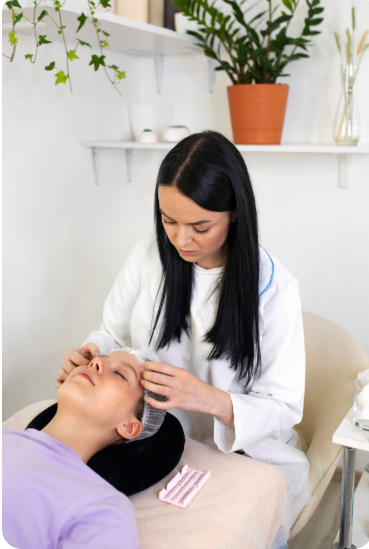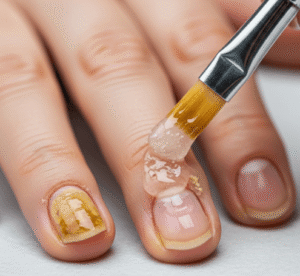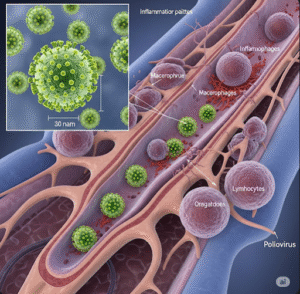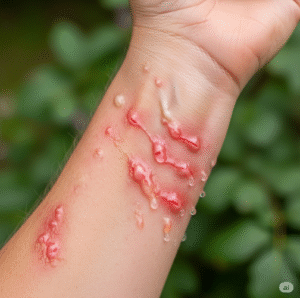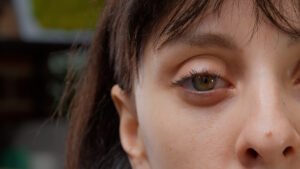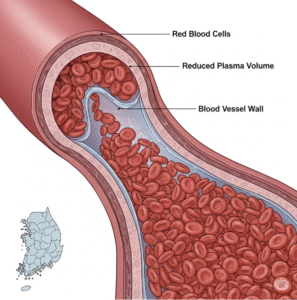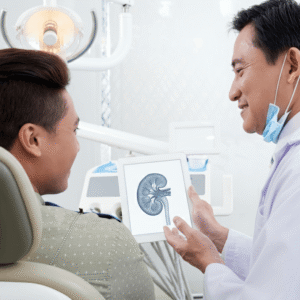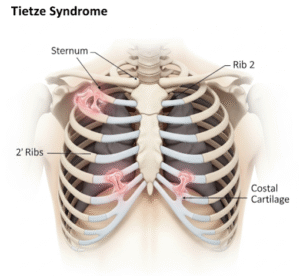What It Is
Forehead fat grafting is a minimally invasive cosmetic procedure that enhances the contour and fullness of the forehead by injecting purified fat harvested from the patient’s own body (commonly from the abdomen, thighs, or flanks). It is especially effective in treating flat, sloped, or asymmetric foreheads, which can make the face appear aged, harsh, or less balanced.
In Korea, forehead fat grafting is among the most popular non-implant forehead augmentation techniques. Korean clinics are internationally recognized for their advanced fat purification methods, micro/nanofat injection techniques, and aesthetic artistry, which ensure natural-looking results and improved fat survival rates.
Why It’s Done
Cosmetic Purposes:
- Creates a smooth, rounded, and youthful forehead contour
- Softens a sloped or flat forehead profile
- Corrects asymmetry between the two sides of the forehead
- Enhances feminine facial proportions, particularly in patients with angular features
Corrective Purposes:
- Restores volume lost due to aging or weight loss
- Improves contour irregularities after trauma, prior surgery, or implant removal
Patient Considerations:
- Suitable for patients seeking a natural, minimally invasive procedure
- Ideal for those who prefer to avoid synthetic implants
- Works best in individuals with sufficient donor fat reserves
Alternatives
- Forehead Implants (Silicone/Medpor): Provide permanent results with more dramatic changes
- Custom Forehead Implants: Tailored solutions for patients needing precision reshaping
- Dermofat Grafting: Uses skin-fat grafts for more structural support
- Dermal Fillers: Quick, non-surgical option; temporary (6–12 months)
Preparation
Patients preparing for forehead fat grafting in Korea typically undergo:
- Consultation: 3D facial analysis and planning of injection points
- Donor Site Assessment: Evaluation of abdomen, thighs, or hips for fat harvesting
- Medical Screening: Blood tests and overall health review
- Pre-Procedure Instructions: Avoid smoking, alcohol, and blood-thinning medications before surgery
- Fasting: Usually required if sedation or general anesthesia is used
How It’s Done
Type: Minimally invasive surgical procedure
Duration: 1.5–2.5 hours
Procedure Steps:
- Fat is harvested from the donor site via gentle liposuction
- Harvested fat is purified and processed (removing oil, blood, and non-viable cells)
- The purified fat is injected into the forehead using micro-cannulas in multiple layers
- The surgeon sculpts the forehead for symmetry and smooth contour
Anesthesia: Usually local anesthesia with sedation; general anesthesia if combined with other surgeries
Hospitalization: Outpatient; patients return home the same day
Recovery
- First Week: Mild swelling, redness, or bruising at injection and donor sites
- Pain Management: Typically mild, managed with oral medications
- Downtime: Most patients resume daily activities within 3–5 days
- Longevity: Some fat is naturally reabsorbed; surviving fat provides permanent results
- Final Results: Visible after 2–3 months once swelling resolves and fat stabilizes
Possible Complications
- Partial fat absorption leading to volume loss (may require touch-up sessions)
- Asymmetry if fat survival differs between sides
- Minor lumpiness or irregularities (usually correctable)
- Infection at injection site (rare with sterile technique)
- Bruising or swelling at donor site
Treatment Options in Korea
Diagnosis
Korean clinics emphasize detailed planning with:
- 3D Facial Imaging for precise forehead contour analysis
- Donor Site Assessment to ensure adequate fat availability
- Digital Simulations to preview expected results
Medical Treatments
For patients not ready for fat grafting:
- Dermal fillers for short-term forehead augmentation
- Skin tightening procedures for mild contour improvements
Surgical or Advanced Therapies
- Standard Fat Grafting: Single-session injection of purified fat
- Microfat or Nanofat Techniques: For smoother texture and improved fat survival
- Hybrid Augmentation: Fat grafting combined with fillers or implants for more dramatic contouring
- Revision Fat Grafting: For patients correcting irregularities or volume loss from prior procedures
Rehabilitation and Support
- Follow-up visits to monitor fat survival and symmetry
- Scar-free donor site management with modern liposuction methods
- International patient support: translation, transport, recovery accommodations, and aftercare

